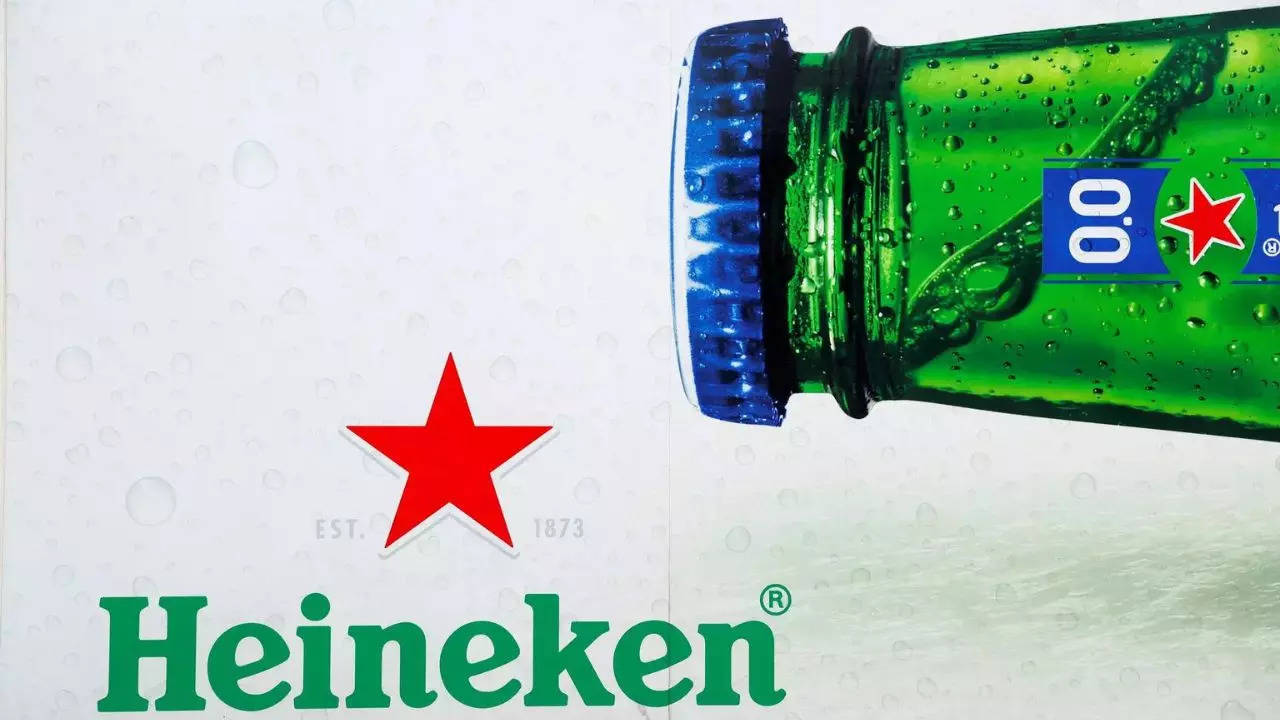THE HAGUE: Dutch brewer Heineken on Wednesday reported a drop in annual profits as beer volumes declined in “challenging market conditions” including high inflation.
The world’s second-biggest brewer after AB InBev said its net profit in 2023 came in at 2.3 billion euros ($2.5 billion), compared to the 2.7 billion euros of profit it made the year before.
Beer volume overall dipped by 4.7 percent, with 60 percent of that decline driven by sharp falls in Nigeria and Vietnam, the firm said.
“This year, Heineken had to prioritise pricing to offset unprecedented levels of commodity and energy inflation,” the brewer noted.
This inflationary pressure tailed off towards the second half of the year, it said, but predicted that the economic climate would “remain a factor of uncertainty” into 2024.
Higher prices did push up the overall sales figures to 36.3 billion euros, a gain on the previous year’s 35 billion.
It forecast future operating profits to be in the “low- to high-single-digit” range, with net profits lower than that due to currency and tax impacts.
There was little cheer on the Amsterdam stock market, with Heineken shares down more than five percent at the open, one of the biggest losers on a market that was flat overall.
Heineken’s half-year report published in July had already given investors a taste of the gloom to come, with net profit slumping 8.6 percent as the firm hiked prices.
In March, Heineken was forced to apologise over “ambiguity” in its pledge to stop business in Russia after the invasion of Ukraine.
A Dutch investigative website reported in February that although Heineken had stopped selling its namesake beer in Russia, it had launched dozens of new products.
In August, the firm announced the full pull-out from Russia, selling its operations to the Arnest Group, the largest Russian manufacturer of cosmetics, household goods, and metal packaging.
In its home market of the Netherlands, the Dutch brewery association said that beer sales overall fell by more than five percent in 2023 due to poor summer weather and inflation.
For the first time since 2001, there was a drop in the number of breweries operating in the Netherlands, the group said, “as it is becoming less profitable to brew beer.”
The world’s second-biggest brewer after AB InBev said its net profit in 2023 came in at 2.3 billion euros ($2.5 billion), compared to the 2.7 billion euros of profit it made the year before.
Beer volume overall dipped by 4.7 percent, with 60 percent of that decline driven by sharp falls in Nigeria and Vietnam, the firm said.
“This year, Heineken had to prioritise pricing to offset unprecedented levels of commodity and energy inflation,” the brewer noted.
This inflationary pressure tailed off towards the second half of the year, it said, but predicted that the economic climate would “remain a factor of uncertainty” into 2024.
Higher prices did push up the overall sales figures to 36.3 billion euros, a gain on the previous year’s 35 billion.
It forecast future operating profits to be in the “low- to high-single-digit” range, with net profits lower than that due to currency and tax impacts.
There was little cheer on the Amsterdam stock market, with Heineken shares down more than five percent at the open, one of the biggest losers on a market that was flat overall.
Heineken’s half-year report published in July had already given investors a taste of the gloom to come, with net profit slumping 8.6 percent as the firm hiked prices.
In March, Heineken was forced to apologise over “ambiguity” in its pledge to stop business in Russia after the invasion of Ukraine.
A Dutch investigative website reported in February that although Heineken had stopped selling its namesake beer in Russia, it had launched dozens of new products.
In August, the firm announced the full pull-out from Russia, selling its operations to the Arnest Group, the largest Russian manufacturer of cosmetics, household goods, and metal packaging.
In its home market of the Netherlands, the Dutch brewery association said that beer sales overall fell by more than five percent in 2023 due to poor summer weather and inflation.
For the first time since 2001, there was a drop in the number of breweries operating in the Netherlands, the group said, “as it is becoming less profitable to brew beer.”
